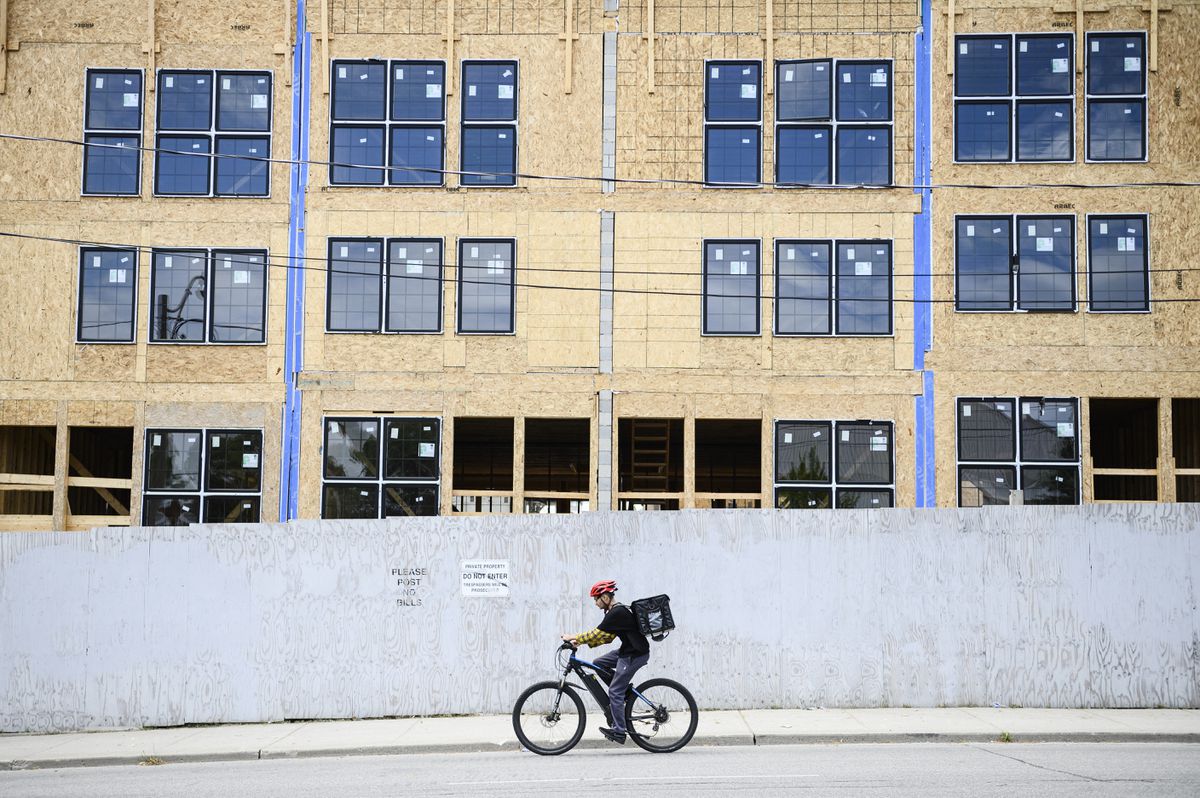People are finally talking about shifting income tax to take some of the money out of the housing market:
First:
a lifetime cap of $1-million on the personal residence capital gain exemption […] would limit unproductive investment in the real estate sector by discouraging retirement strategies based on the gains made from selling a house. It would also stop the investment strategy of buying a house, renovating, living in it the minimum amount of time to claim the tax credit and then flipping it for a tax-free gain.
They note that the lifetime cap wouldn’t hit most Canadians in lower-cost communities. It should mostly hit higher end houses and higher income taxpayers.
Second:
a limit applied to the amount of interest that can be recorded as a business expense for single-family residences let as rental properties
They’re suggesting these changes because
investors are the fastest growing mortgage segment with a 30-per-cent share of mortgaged home purchases nationally in the first part of this year, up from 19.6 per cent in 2020. They are now a bigger segment than repeat homebuyers and, over the past few years, have taken 6 per cent of market share from first-time buyers



We build more new units per quarter than all the Airbnb listings that exist across Canada. Banning them would not free up any sort of significant supply.
If you ban ownership for the sole purpose of renting, where are renters supposed to live? Someone has to own every unit that gets rented out. There are many reasons why someone may want to rent rather than owning, ownership is not beneficial in every situation.
Sure ban subletting to Airbnb, it’s not going to hurt anything to do that. Go ahead.
Airbnb is a great scapegoat, it’s easy to point at and does have some realistic impact, but even the biggest studies are showing that the impact is still fairly low. https://www.cbc.ca/news/canada/british-columbia/short-term-rental-report-1.6973598
“The study by McGill University, led by professor David Wachsmuth, found that between 2017 and 2019, the growth of short-term rental units accounted for 19.8 per cent of rent increases in the province.”
So prices doubled, and Airbnb only accounted for 20% of the 100% increase. Going from 1000/month to 1800/month is better than 2000/month, but it’s unaffordable either way. Even if we ban Airbnb, that other growth is going to keep occurring and we aren’t doing a damn thing to slow that down.
Are there any statistics on that that are more granular than “across Canada”? I’d imagine some areas (coastal BC, small touristy towns, prime downtown locations, etc.) Would make up a higher share of Airbnbs than their share of new construction.
It doesn’t really need to be any more granular than “across Canada” if the goal is to house people at affordable rates.
The moment you get into trying to house people only where they want to live and also account for their desired housing size, you get into significant problems that are impossible to solve.
It’s mathematically impossible to house people that way, there are too few desirable areas for the number of people who want to live in them no matter how much we build. I’d love to hear a suggestion on how we could better ration those rather than just making them more expensive until the number of people willing to pay that matches the number of units available. You could build the city of Victoria downtown core into Tokyo level density and it would probably make it more expensive than it currently is rather than less because there would be additional amenities opening up to people.
The thing about the tourist locations at least, is that it’s self correcting. If workers can’t afford to live there, tourist businesses won’t be able to hire workers there. Nobody “needs” to live in a tourist area. Eventually the companies will either figure out a way to house those people to keep making money, or the tourism will die down and open up space for workers again.
Cities are a bit more complex, they also follow similar logic, people don’t “need” to live in the actual core. Not when a 10 minute bus ride gets you to 50% of the rest of the city.
I’m not saying Airbnb is good, or not to ban it, go ahead and do just that because it will help a bit. It’s just that if you do, don’t expect housing prices to actually come down from their current levels in downtowns or tourist locations, they’ll just have a tiny little plateau before they return to climbing again.
I guess I’m just coming from a point of frustration. The area I grew up in wasn’t a tourist area or otherwise very desirable to anyone who didn’t come from the area (long commute to anywhere with decent jobs). I’ve noticed in the last few years that it’s been a combination of people being priced out and moving further and further from cities, as well as a ton of properties being converted to Airbnbs. I understand that not everyone can live where they want, but I think it’s reasonable to be frustrated when the place you lived your whole life becomes unaffordable to those with history there, and the people who can afford property don’t even want to live there themselves.
deleted by creator